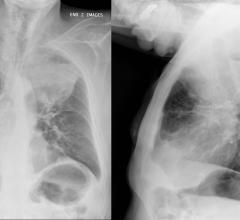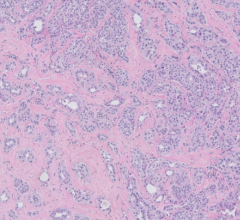
Getty Images
November 2, 2020 — An analysis of the phase III NRG Oncology clinical trial RTOG 9601 on men receiving salvage radiotherapy (SRT) following prostatectomy for recurrent prostate cancer indicated that, while biochemical failure (BF) was not a strong surrogate endpoint to determine overall survival (OS), metastasis-free survival (MFS) was in this patient population. These findings are consistent with data in the intact prostate primary radiation treatment setting. The analysis results were presented at the virtual edition of the American Society for Radiation Oncology's (ASTRO) Annual Meeting in October 2020.
Previously, the Intermediate Clinical Endpoints in Cancer of the Prostate (ICECaP) working group identified MFS as a valid surrogate for OS in men treated with localized prostate cancer, however, only 8% of the men in the ICECaP analysis were treated with prostatectomy and this included no trials that employed SRT. Prior to the analysis of NRG-RTOG 9601, the performance of intermediate clinical endpoints (ICEs) to serve as surrogate endpoints were unknown in a SRT setting. The NRG-RTOG 9601 analysis surveyed two types of BF including PSA nadir +0.3-0.5 ng/mL or initiation of salvage hormone therapy as defined by the NRG-RTOG 9601 study and PSA nadir + 2ng/mL as defined by the NRG-RTOG 0534 study. Researchers also assessed DM and MFS endpoints. Endpoints were all assessed for surrogacy using two approaches; the Prentice Criteria, and a two-stage meta analytic approach in which two conditions had to be met for surrogacy including that the ICE had to be correlated to OS and the treatment effect on the ICE and OS had to be correlated.
Although BF, MFS, and distant metastasis (DM) each satisfied the four Prentice Criteria for OS, there were differences with the two-condition approach that was used to determine surrogacy. In the two-stage, meta-analytic approach, MFS was strongly correlated with OS (τ = 0.86). Other endpoints were not significantly associated with OS. DM was only moderately correlated with OS (τ = 0.66) and BF weakly correlated to OS on both the RTOG 9601-defined BF (τ = 0.25) and RTOG 0534-defined BF (τ = 0.40) endpoints. Biochemical failure was considered prognostic in this analysis; however, PSA-based ICEs as well as the treatment effect of antiandrogen therapy were only weakly correlated with OS and, therefore, would be considered a poor surrogate endpoint.
"From this analysis, we believe that researchers should be cautious when inferring clinical benefit from studies utilizing biochemical failure as a surrogate for overall survival," stated William Jackson, M.D., of the University of Michigan and lead author of the NRG-RTOG 9601 analysis abstract. "These findings highlight that the two-stage meta analytic approach should be the preferred method when assessing surrogacy."
These findings can be further validated as data is collected from current, ongoing salvage radiotherapy trials in this patient population.
For more information: www.


 April 25, 2024
April 25, 2024 








